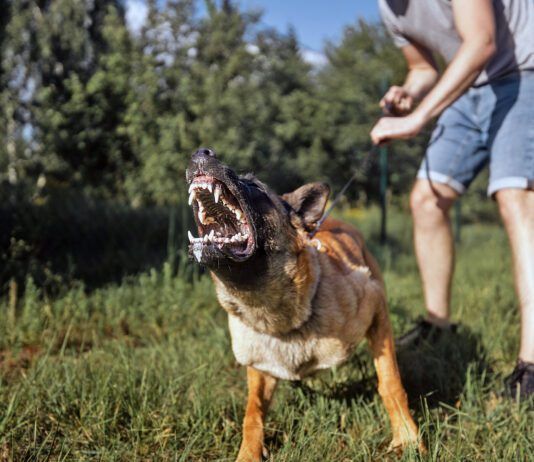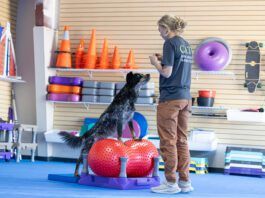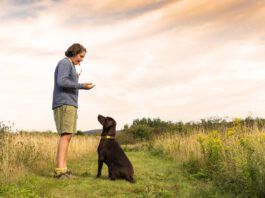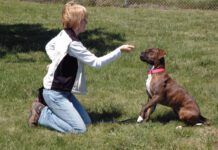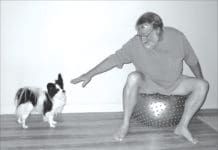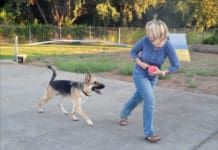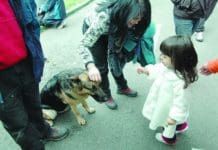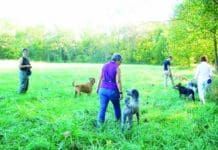How to Get a Dog to Behave
Berkeley
When to See a Vet and When to See a Trainer
or gradually becomes uncharacteristically undesirable."
How Your Dog Can Help with Physical Therapy
a Papillon in training to become a service dog, demonstrates a stretching/hand-control exercise where the client is asked to roll the ball toward the dog, and the dog rolls it back.üTim (Debi's husband) demonstrates some of the exercises that dogs can help with during animal-assisted physical therapy. In this exercise, the dog was directed to stand in place as the client maintained his balance while reached and stretching toward the dog.
5 Things To Do If Your Dog Snaps at a Guest
If you've never had to deal with that alarming moment when your beloved dog snaps at a guest in your home, you are fortunate. I hope you never do. But just in case, it's good to know that, first, you're not alone lots of dogs have snapped at guests in their homes (or worse!). Second, it's not the end of the world; it doesn't mean you need to euthanize your dog and it doesn't mean your dog will inevitably maul someone. It is, however, an important heads-up for you. How you handle the situation can often determine if your dog's aggression toward visitors escalates or diminishes. So if it happens, here's what you need to do:
Take Your Water-Loving Dog Dock Diving!
Summer! It's the perfect time for dock diving. In this canine sport (also known as dock jumping), the participating dog jumps off an elevated diving platform into a portable pool and the dog with the longest jump is deemed the winner. I think dock diving is possibly the best canine sport for spectator enjoyment. And, if you decide to compete, you can easily redline the FUN meter! Besides the joy of hanging out with my dog by a cool body of water, the one thing I love about the sport is that with just a few dog and handler skills, any person and any breed of dog and size of dog can participate.
5 Things To Do If Your Dog Won’t Come to You
It's frustrating at best, dangerous at worst, when you can't get your dog to come to you. Indoors, he may be suspicious that you're going to do something aversive, such as treat his ear infection, or put him in his crate. Outdoors, he may also have an aversive association with coming to you, or he may just be having entirely too much fun. Whatever the cause, here are five tips for handling the crisis:
Productive Ways to Train Your Dog
Life with any dog has its moments of agony and ecstasy. The ecstasy happens when our dogs' behaviors are top notch, and all systems seem to run smoothly. The agony happens when our dogs have an oops" moment
5 Ways to Prevent Your Housetrained Dog from Soiling the House
It's very disconcerting when your well-housetrained dog suddenly starts having accidents in the house. It may be human nature to think he's doing it to spite you, but that's not the case a well-trained dog doesn't just start soiling indoors on a whim. There's a legitimate reason it's happening, and you owe it to your dog to find out why. Here's what you need to do:
Training Your Dog to Be Polite
she probably shouldn't be in public until she's had some remedial "downtown hound" lessons.üTeach your dog "leave it
How to Catch a Dog on the Loose
but most will send an officer right away if the dog is contained."
Professional Dog Training Titles
Not to be outdone by the veterinary profession (See Alphabet Soup
Dog Certifications and Titles
My friend has super fast dogs, and they compete in agility. I always imagined that the magnets on the back of her vehicle indicated just how fast they could run: MACH speeds! And C-ATCH: Catch me if you can! Obviously my Border Collie, Duncan, and I didn't get far enough in our brief agility career to earn any titles (he preferred to make up his own courses). But when my curiosity got the better of me and I looked into what, exactly, those letters on my friend's car actually meant, I quickly learned that there are countless titles and certifications that can be bestowed upon our canine companions.


